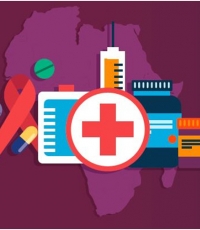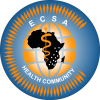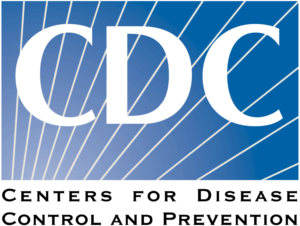
Case detection of Multi-Drug Resistant Tuberculosis (MDR-TB) is very low in Southern Africa despite the region being home to 5 of the 30 MDR-TB High Burden countries in the world. Currently, MDR-TB case detection stands at 9% in Mozambique and Zambia and 30% in Lesotho, with treatment outcomes ranging from 33% in Zambia to 63% in Lesotho. MDR-TB has become a serious emergency, hence there is need to work together to strengthen efforts towards capacity building in MDR-TB control.
African mines have been recognized as a major driver of TB in southern Africa. Although causality has not been established in all countries is it is well documented in Lesotho that cross-border migration to the mining sector is highly related the high burden of drug resistant TB.
In response to the challenges posed by the cross-border migration on TB control, the SATBHSS project through the Community of Practice (CoP) on continuum of care has set priorities for carrying forward implementation of SADC harmonization of MDR-TB treatment regiments in line with the latest World Health Organization (WHO) developments. East Central and Southern Africa Health Community (ECSA-HC) facilitated a training in the Rwanda Centres of Excellence (CoE) for Programmatic Management of Drug-resistant TB (PMDT) from 25 – 29 September 2017.
The training joined 8 clinical and TB managerial staff from Zambia and Malawi with the aim of targeting staff from the SATBHSS project countries and training them in MDR-TB clinical management. The training also focused on providing insights on the process of introducing short MDR-TB treatment regimen and improving training curriculum in line with WHO accredited MDR-TB training institutions curriculum.
The training provided a platform for information exchange amongst the two participating SATBHSS project countries with Rwanda Centres of Excellence on PMDT, with regards to MDR-TB training curriculum implementation and clinical management, with emphasis to the implementation of the WHO recommended short MDR-TB regimen.
ECSA-HC also facilitated a knowledge exchange visit with Rwanda National Tuberculosis Control Programme, aiming at providing insights for strengthening or establishing psychosocial support services for MDR-TB patients and understanding the roadmap and challenges in this process. The knowledge exchange focused on examining/reviewing infrastructure requirements for a sputum Sample Referral network system and gather insights for establishing/improving integrated sample referrals, as well as gather insights for implementation/integration of PAL in NTP routine activities.
This exchange visits included 10 TB management staff from Malawi, Mozambique and Zambia, in an interactive learning experience in the health facilities and TB management units of Rwanda National Tuberculosis Programme, namely the MDR-TB treatment facilities, the National Tuberculosis Reference Laboratory, and district MDR-TB management units.
By the end of the training, SATBHSS project country representatives identified national gaps in current training curricula, and provided insights on the needs and way forward (clinical and laboratory) and documented some gaps faced by the Rwanda PMDT program as a lesson learnt. They also identified gaps in target programmatic areas and how these can be further strengthened. A draft concept of the composition training curriculum was also developed.
The successful implementation of activities under the SATBHSS project will improve the current situation of low case detection and poor treatment outcomes and better quality of care and reduced squeals for MDR-TB patients. In the long term, these interventions are expected to contribute to in-country TB control and attaining universal health coverage and reduction of TB burden.






